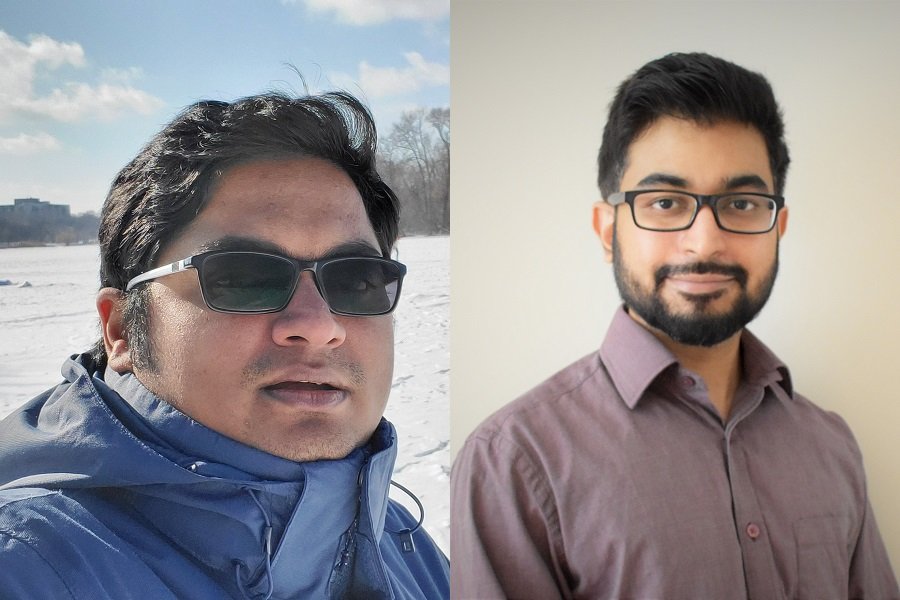ECE students win at 2021 IEM Annual Conference poster session

The 2021 IEM Annual Conference Poster Session saw two first place winners from ECE, Vasanth Ravikumar and Sandeep Avvaru.
Vasanth Ravikumar, lead author of the paper that won first place in the cardiovascular engineering category is currently pursuing his doctoral degree under the supervision of professor Alena Talkachova. The prize winning paper titled, “Similarity score for the identification of active sites in patients with atrial fibrillation” stems from his doctoral research addressing challenges to improving catheter ablation therapy for persistent atrial fibrillation (AF) patients. His dissertation in particular identifies cardiac dynamics during arrhythmia and the improved detection of atrial targets for ablation.
Currently, in the US alone, it is estimated that between 3 million to 6 million people have AF. One treatment option for a complex cardiac arrhythmia such as AF is catheter ablation which targets the tissue responsible for the arrhythmia. However, AF recurrence rates remain high due to inaccurate localization of the sources of the arrhythmia, which can lead to additional health care costs and possible surgery.
Ravikumar’s work is directed at developing novel signal processing algorithms to accurately detect ablation targets for cardiac arrhythmias. His research, which has shown that AF drivers can be more accurately identified under different clinical scenarios like noise, prior scars, reduced spatial resolution, and sequential signal acquisition, could fill a gap in current electro-anatomical mapping systems. Significantly, it has the potential to provide personalized therapy to map AF substrates on a patient basis to improve ablation outcomes and reduce AF recurrence rates.
Sandeep Avvaru, lead author of the paper that won first place in the neuroengineering category, is working on his PhD under the supervision of professor Keshab Parhi. His paper is titled “Region-Level Functional and Effective Network Analysis of Human Brain During Cognitive Task Engagement,” and is an outcome of his interest in the areas of biomedical signal processing, neuromodulation, neural engineering, and machine learning. His doctoral research is focused on the development of new methods to construct causal brain networks that are indicative of a cognitive phenomenon or a disorder.
Neuropsychiatric disorders are the leading cause of disability in the United States. While around 20 percent of adult Americans experience mental illness, existing treatments for mental illness are less than 50 percent effective. As part of his doctoral work Avarru analyzes neurophysiological recordings from patients and proposes a way to estimate task engagement networks that reveal key brain regions involved in task-related decision making. Such analyses can help identify and understand the underlying mechanisms behind cognitive dysfunctions, which in turn can lead to more effective treatment alternatives. Avarru was the lead author on a paper that presents a method to identify critical biomarkers of task engagement. It was titled, "Region-Level Functional and Effective Task Engagement Network Analysis of Human Brain During Cognitive Task Engagement," and published in IEEE Transactions on Neural Systems and Rehabilitation Engineering (TNSRE), volume 29. Avvaru also holds the MNDrive Neuromodulation fellowship.